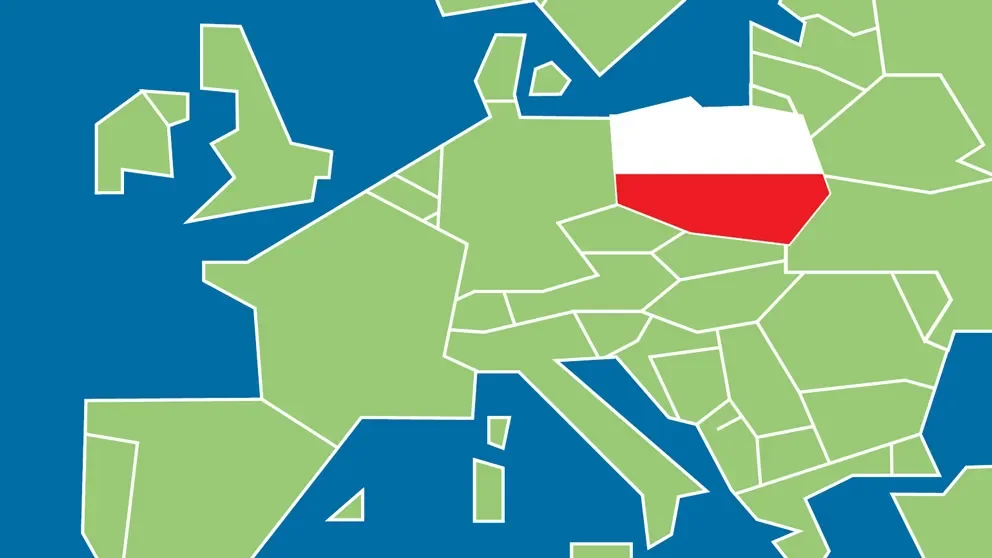JAX connections: Poland
The Search Magazine Article | June 21, 2018
Poland has about 38 million inhabitants, about a tenth of the U.S. population, but the Eastern European country has a significant and growing presence in the world of science, including at JAX.
JAX Professor Yijun Ruan, Ph.D., collaborates on several research projects with Grzegorz Wilczyński of the Laboratory of Molecular and Systemic Neuromorphology at the Nencki Institute of Experimental Biology in Warsaw, Poland. In one project, funded by the international Human Frontier Science Program, the researchers explore the role of the 3D genome in the complex mechanisms involved in memory, learning and epilepsy.
JAX Professor Karolina Palucka, M.D., Ph.D., is an internationally recognized clinical oncologist and cancer immunologist. She conducts research to understand how vaccines work and to define precisely the immune mechanisms that underlie vaccination, with a focus on cancer immunotherapies. Palucka earned her undergraduate and M.D. degrees in Poland but moved to Sweden to obtain her Ph.D. in hematology and immunology at the Karolinska Institutet in Stockholm, followed by a postdoctoral fellowship in Paris. She came to the U.S. to join the Baylor Institute for Immunology Research before joining the JAX faculty in 2014.
Palucka is one of three members of the JAX research faculty who were born in Poland and received their primary and secondary schooling in the rigorous public education system there. “You had to pass a difficult entrance exam to get into your chosen high school or university,” says Assistant Professor Ewelina Bolcun-Filas, Ph.D. “And students coming out of the top high schools were often at the level of a four-year college student in the U.S.”
Bolcun-Filas left Poland to earn her Ph.D. at the Institute for Human Genetics Georg‑August‑Universität Göttingen, Germany, followed by postdoctoral work at the MRC Human Genetics Unit in Edinburgh, Scotland, and Cornell University in Ithaca, N.Y. She studies the mechanisms of DNA damage detection and repair in developing germ cells, which could hold clues for ways to protect the fertility of female cancer patients undergoing radiation or chemotherapy treatments that could damage the finite egg reserve in the ovary.
LLike Bolcun-Filas, Assistant Professor Olga Anczuków, Ph.D., continued her education outside her native country, earning her undergraduate and graduate degrees in Lyon, France, at the École Normale Supérieure de Lyon and Université Claude Bernard. At JAX, Anczuków investigates how RNA splicing contributes to breast and ovarian cancer progression, metastasis and drug resistance.
Anczuków and Bolcun-Filas pursued their scientific training in the era following the fall of Communism when there were few academic research positions for the country’s many well-trained scientists.
However, a recent article in the journal Nature, “Into the Light,” depicts Poland as a nation that is building its research infrastructure and growing in scientific influence, doubling the percentage of gross domestic product spent on science between 2005 and 2015. “Poland is already taking the lion’s share of scientific publications produced in Eastern Europe,” the article notes.
Polish-born Wojciech Rosikiewicz, Ph.D., notes, “There are currently so many funding opportunities available in Poland that a scientist with a good idea will always find a way to fund his or her research.” He also points to grant programs that enable students to continue their education in other European Union countries and to establish labs back in Poland once their education is complete.
These indications of a thriving Polish scientific community should ensure that scientific collaborations and partnerships with JAX continue well into the future.



